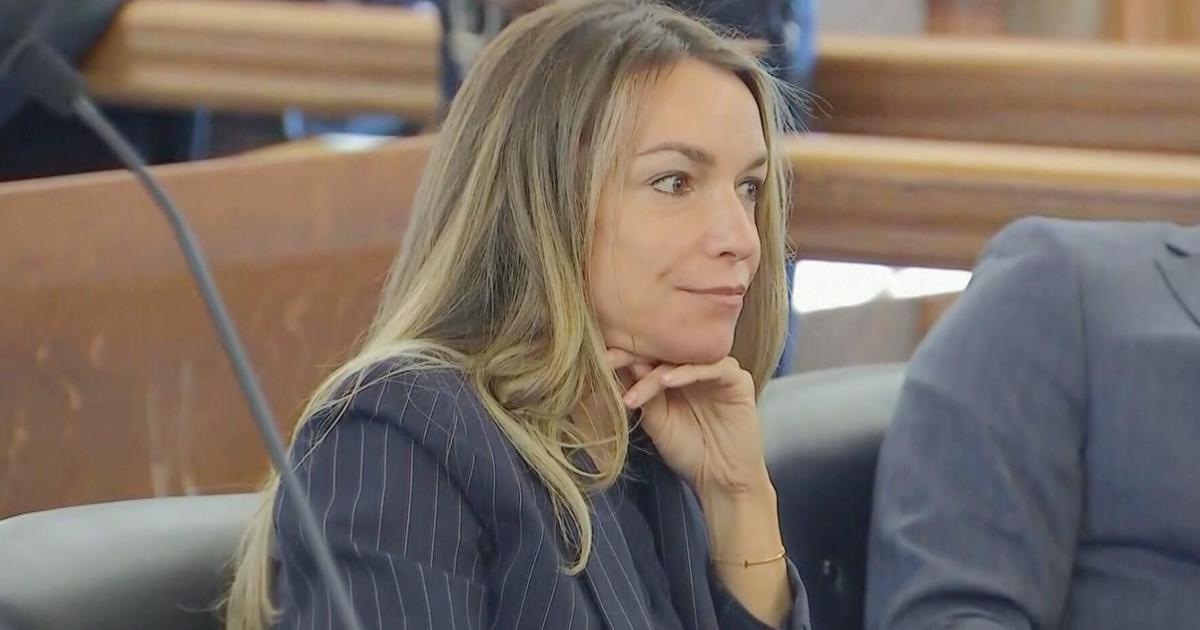Molly Bish Cold Case An Inspiration For Bill To Expand DNA Use
STATE HOUSE, BOSTON, FEB. 19, 2020. (State House News Service) -- A state senator from central Massachusetts hopes a bill she recently filed will give police a new tool to investigate long-unsolved violent crimes.
Sen. Anne Gobi's bill would task the director of the state crime laboratory with developing regulations to allow familial DNA searching -- seeking out a partial match to DNA found at a crime scene, with the goal of narrowing the hunt for a suspect by identifying a relative -- in certain unsolved cases involving homicides, burglary and violent felonies.
Gobi said she filed the bill based on conversations with a constituent, Heather Bish, whose sister Molly was 16 years old when she disappeared from her lifeguard post in Warren nearly 20 years ago. Molly Bish's body was found in 2003, and her murder remains unsolved.
"The basic thing behind it is kind of going back to the Bish family," Gobi said in an interview. "They've hit every roadblock possible. They just don't know who the killer was, and there's other cases like that, so this would be an opportunity for police. It's really to be used when every other avenue has been exhausted."
The use of partial DNA to identify family members and find potential answers for unsolved crimes is a relatively new development. It sprang into national headlines in 2018, when California authorities announced the arrest of 72-year-old Joseph D'Angelo as the suspect in what's known as the Golden State Killer or East Area Rapist case, a series of crimes from the 1970s and 1980s that included 12 homicides, more than 40 rapes and multiple burglaries.
Investigators honed in on D'Angelo after finding a partial match between crime-scene DNA and and a relative's genetic material on a genealogy website.
Gobi said her bill (S 2480) focuses on DNA from people who have been associated with other crimes. It would cover databases containing DNA profiles from convicted offenders, and allow partial matches, as well as full matches, to be shared with law enforcement.
Gobi filed the bill in January, and plugged it last week at a Ways and Means Committee hearing on Gov. Charlie Baker's fiscal 20201 budget proposal. The Judiciary Committee took up Gobi's bill two days later, at a Feb. 13 hearing.
After Attorney General Maura Healey outlined her budget requests, Gobi, a Senate Ways and Means Committee member, told Healey that she likes "to use these opportunities to put things on people's radars if they're not already." The Spencer Democrat mentioned that she and Rep. Todd Smola, a Warren Republican, have been working with the Bish family on a familial DNA bill.
"I know that we haven't had a chance to speak really in depth on that, but it is something that I'm hoping that we have to get the support of your office, you and your office, on," she told Healey.
Healey, in response, said she recently met with representatives of the Bish Foundation.
"I know that we are happy to review that language and think it's really important that we do what we can to help these families," she said.
Gobi said that about 12 states currently use familial DNA, and the ability to do so "would absolutely be a wonderful tool for law enforcement here in Massachusetts."
The only two jurisdictions to have enacted laws specifically addressing familial DNA searching, according to the National Conference of State Legislatures, are Maryland and Washington, D.C., which have both banned its use.
The U.S. Supreme Court has not addressed the technology's use by law enforcement, according to an NCSL publication on emerging issues in forensic sciences. California, Colorado, Texas and Virginia have all developed administrative policies for the use of familial searching.
"A common element in these policies is that partial match analysis and familial searches may only be used once all other leads have been exhausted," the NCSL said. "Lawmakers considering this issue weigh the crime fighting potential of these procedures against the Fourth Amendment and privacy concerns of pursuing a suspect based on the DNA of a family member."
Gobi filed her bill in the second half of a two-year legislative session -- most of the thousands of bills lawmakers will consider this term were filed in January 2019.
She said her intent was to "at least get the bill out there" so that she could hear from supporters and anyone who might have concerns.
"I'd rather know that ahead of time and then know that going into next session, to have an idea how to improve it," she told the News Service.
(© Copyright 2020 State House News Service)



